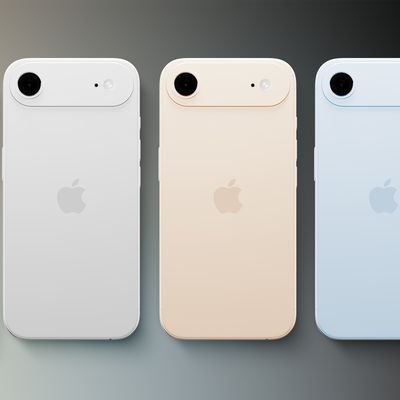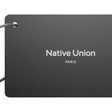Samsung Loses $1 Billion in Market Value After U.S. Veto on Apple Ban, Files Appeal Against Patent Ruling
After the Obama administration vetoed a partial ban on the import and sale of some Apple products, Samsung announced that it has been granted a hearing in a US appeals court next year against the original ruling, as reported by the Financial Times. Concurrently, The Wall Street Journal reports that Samsung has lost $1 billion in market value after the weekend veto. The South Korean government has also criticized the decision, saying it had "concern over the possible negative impacts that this kind of decision could have on Samsung Electronics' patent rights".

Samsung revealed on Monday that it had filed a court appeal on July 18 against the original ITC finding, because the ITC ruled that Apple had infringed only one patent, rather than finding in favour of Samsung on all four patents it had claimed were violated.
The appeal was filed at the US Court of Appeals for the Federal Circuit in Washington, a Samsung spokesman said, adding that an oral hearing was scheduled for the first quarter of next year.
Originally, the ban of Apple products was granted back in June in response to a ruling made by the USITC (United States International Trade Commission) and applied to AT&T models of the iPhone 4 and iPhone 3GS, as well as the 3G models of the iPad and iPad 2. The USITC ruled that all four products infringed on a Samsung patent, specifically Patent No. 7,706,348, titled "Apparatus and method for encoding/decoding transport format combination indicator in CDMA mobile communication system."
Apple and Samsung have been in a long, ongoing legal battle that started in 2011, with the first U.S. trial awarding $1 billion to Apple in 2012. However, a judge voided nearly half of that amount in March, and a new trial between the two companies is set for November of this year.
Popular Stories
Apple will launch its new iPhone 17 series in two months, and the iPhone 17 Pro models are expected to get a new design for the rear casing and the camera area. But more significant changes to the lineup are not expected until next year, when the iPhone 18 models arrive.
If you're thinking of trading in your iPhone for this year's latest, consider the following features rumored to be coming...
A new Apple TV is expected to be released later this year, and a handful of new features and changes have been rumored for the device.
Below, we recap what to expect from the next Apple TV, according to rumors.
Rumors
Faster Wi-Fi Support
The next Apple TV will be equipped with Apple's own combined Wi-Fi and Bluetooth chip, according to Bloomberg's Mark Gurman. He said the chip supports ...
Apple's next-generation iPhone 17 Pro and iPhone 17 Pro Max are only two months away, and there are plenty of rumors about the devices.
Below, we recap key changes rumored for the iPhone 17 Pro models.
Latest Rumors
These rumors surfaced in June and July:A redesigned Dynamic Island: It has been rumored that all iPhone 17 models will have a redesigned Dynamic Island interface — it might ...
Apple does not plan to refresh any Macs with updated M5 chips in 2025, according to Bloomberg's Mark Gurman. Updated MacBook Air and MacBook Pro models are now planned for the first half of 2026.
Gurman previously said that Apple would debut the M5 MacBook Pro models in late 2025, but his newest report suggests that Apple is "considering" pushing them back to 2026. Apple is now said to be...
iPhone 17 Pro and iPhone 17 Pro Max models with displays made by BOE will be sold exclusively in China, according to a new report.
Last week, it emerged that Chinese display manufacturer BOE was aggressively ramping up its OLED production capacity for future iPhone models as part of a plan to recapture a major role in Apple's supply chain.
Now, tech news aggregator Jukan Choi reports...
The long wait for an Apple Watch Ultra 3 is nearly over, and a handful of new features and changes have been rumored for the device.
Below, we recap what to expect from the Apple Watch Ultra 3:Satellite connectivity for sending and receiving text messages when Wi-Fi and cellular coverage is unavailable
5G support, up from LTE on the Apple Watch Ultra 2
Likely a wide-angle OLED display that ...
In select U.S. states, residents can add their driver's license or state ID to the Wallet app on the iPhone and Apple Watch, providing a convenient and contactless way to display proof of identity or age at select airports and businesses, and in select apps.
Unfortunately, this feature continues to roll out very slowly since it was announced in 2021, with only nine U.S. states, Puerto Rico,...
The iPhone 17 and iPhone 17 Air will be available in a total of nine color options, according to new information coming out of Asia.
The iPhone 17 Air's expected color options.
According to the leaker going by the account name "yeux1122" on the Korean blog Naver, accessory manufacturers are now producing camera protector rings for the iPhone 17 and iPhone 17 Air in colors to match their...





















